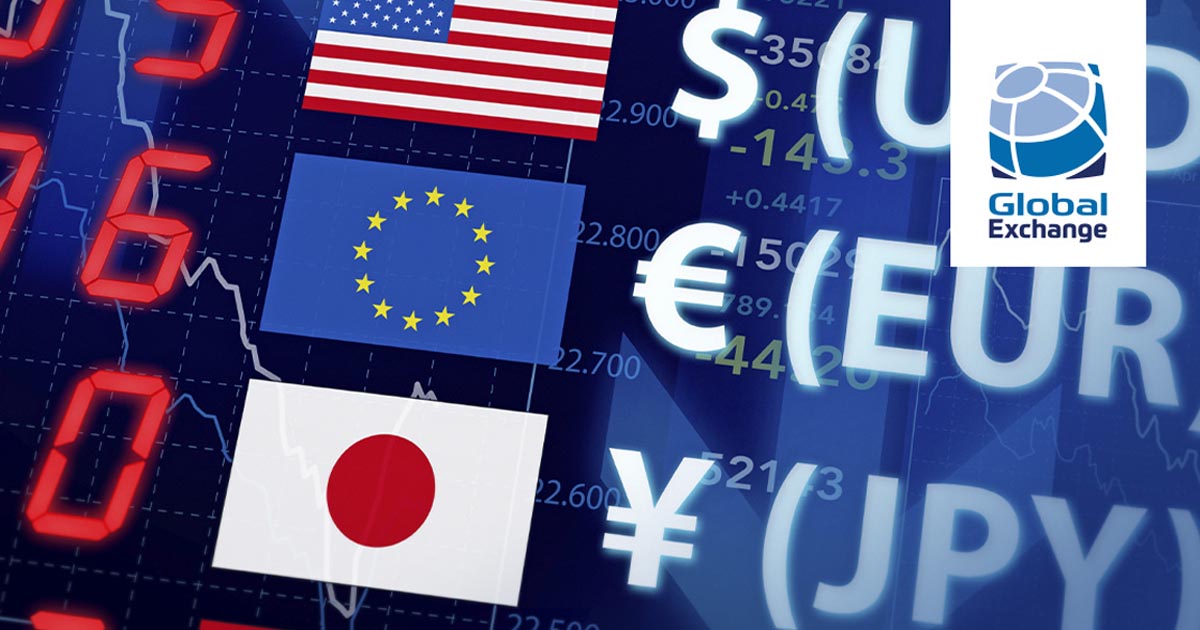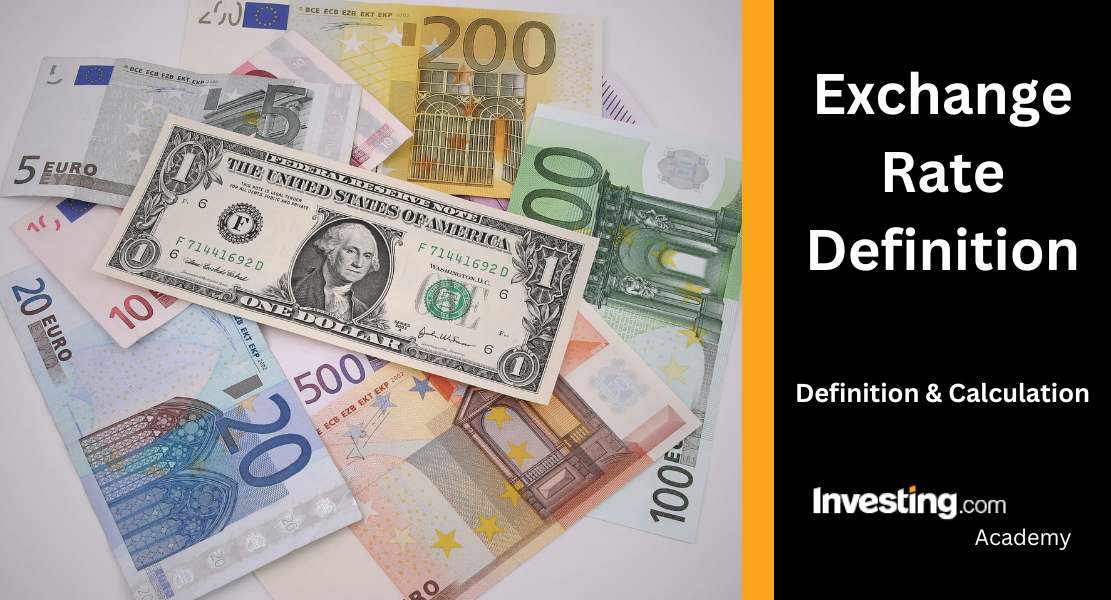What Are The Differences Between Local Rates And Those Offered Online?
Understanding the difference between local and online exchange rates in today's global economy is essential for those who are involved in travel, business or investment. Local rates are the ones that are offered by ATMs, banks or other physical currency exchange establishments that are located in your city or at your destination. Online rates are provided through digital platforms, financial institutions, and other converters for currencies. They are susceptible to major variations, and can have a major impact on the amount you pay for exchange and your investment returns. Knowing the difference between online and local rates will help you make more informed decisions that will save you money. The top ten tips to use the local and online rates effectively are provided below.
1. Know the difference between rates
Local rates of exchange differ significantly from online rates due to a variety of factors, including the cost of overhead and market conditions. Local exchange services may have higher fees or less favorable rates due to operational costs. Online platforms however typically offer higher rates because they are less overhead. Understanding these differences can help you select the best currency exchange service for your requirements.
2. Compare Exchange Rates before Exchanging Currency
Compare rates from local and online sources before exchanging money. For rates that are in real-time, you can use currency converters or websites. If you're visiting a different country and you want to check the rates of exchange versus those offered by local banks or the currency exchange booths, do a search online. It is possible to reduce costs by comparing the exchange rates.
3. Utilize Online Currency Exchange Platforms
Platforms for currency exchange online such as Wise and Revolut offer more affordable rates and less costs than local banks and exchange kiosks. These platforms provide transparent fees and real-time rates. By using these services you can be sure that you get the best deal possible when converting currencies.
4. Be aware of Dynamic Currency Conversion (DCC).
When you buy items overseas, the option might appear to pay with your own currency with Dynamic Currency Conversion. Although this may appear practical, it usually comes with unfavorable exchange rates as well as additional charges. Reduce DCC charges by paying local currency. Also, you'll benefit from higher exchange rates.
5. Consider the convenience vs. Take into consideration the convenience vs.
If you are deciding between local and online rates, weigh the convenience and the price. Local exchanges can provide speedy access to cash when you are traveling. Exchanges online are usually cheaper, but they may require the opening of an account. Assess your needs based on your travel plans or business transactions to determine the best option for you.
6. Monitor Exchange Rate Trends
Monitoring patterns in exchange rates could assist you in making an informed decision on when to change your currency. Online platforms provide historical data and analytical tools that can help you track exchange rates fluctuations. Knowing how markets work will help you plan your currency exchanges better so that you can benefit from the best rates.
7. Examine ATM fees and local withdrawal limits
– If you decide to withdraw cash from an ATM during your travels, be aware of any charges associated with withdrawals from local ATMs. Different banks charge fees for international transfers, and ATMs may have their own limitations on withdrawals. Before you travel, do some research on local ATMs to make sure that you are getting the best rate and with the least amount of fees.
8. No-Fee Currency Exchange Services
Many online platforms or banks offer no-fee service for exchange of currency, specifically for those who have accounts. This is especially helpful to business and individuals who work with foreign currency frequently. Make an account with these institutions to take advantage of lower rates and better exchange rates. This can maximize your savings.
9. Consult Financial Experts for Large Transactions
If you're dealing in large quantities of money or have a complicated exchange rate, then the advice of experts in finance is highly beneficial. Experts in currency are knowledgeable about the most efficient methods to manage the local rate and rates online. This is crucial for businesses involved in international trade, or investors who want to make the most of their exposure to currency.
10. Plan ahead to be prepared for your needs in the field of currency
– Whether traveling or conducting business making a plan to meet your needs in terms of currency will help you save time and money. Determine how much you'll require for your trip, then decide the best exchange rate. If the local exchange rate isn't optimal, consider converting your cash on the internet prior to your trip. You'll get better rates and won't lose money.
Use these guidelines to navigate the complexity of currency exchange, regardless of whether you're on the road, conducting business, or monitoring investments. Knowing the advantages and drawbacks of each choice will help you make more informed financial decision. This can ultimately save you money as well as improve the overall strategy for financial planning. Follow the recommended us info for blog advice including us dollar to colombian peso, dollar to euro, usd to indian rupees, usd to mxn, exchange rate, us dollar to pkr, rmb to usd, usd to british pound, usd to cad, exchange rate and more.

Top 10 Tips For Transaction Limits In The Context Of Exchange Rates And Rates
Limits for transactions play an essential role in all financial activities. Limits are the maximum amount you can invest during a particular time. They are usually established by banks, financial institutions or payment processors. Knowing the limits of transactions can aid you in maximizing your financial strategy and avoid unneeded charges or delays. Transaction limits can influence the cash withdrawals you make abroad and on purchases. Businesses can be impacted by them since they could impact cash flow or payment processing management. Investors should be aware of the limits on transactions when purchasing or selling assets. The top 10 suggestions on how you can effectively manage limits on transactions in your financial dealings are listed below.
1. Be aware of your bank's transaction limits
The financial institution or bank typically has specific transaction limits for purchases, withdrawals and transfers. Make sure you are familiar with the limitations of each financial institution prior to traveling or make purchases of a significant amount. This will help you plan your finances effectively and avoid problems when trying to get funds or purchase items from overseas. Contact your bank or go to their website to determine your account limit.
2. Plan your Cash Withdrawals Before Traveling
If you are planning to travel, it is essential to make sure you plan cash withdrawals in a way that they don't exceed the limits set by your bank. Knowing the daily limit for cash withdrawals will allow you to estimate the amount of cash you'll should bring on your journey. To ensure that you don't run out of cash, you should consider making larger withdrawals in one go as much as you can. Also, be aware of any foreign ATM fees that might be charged. Also, you should have a backup method of cash in case your withdrawal limits are reached.
3. Utilize Multiple Payment Methods
It is not advisable to rely on a single payment method because this can lead to problems once you've reached your limit on transactions. Utilize a mix of credit and debit cards as well as cash and mobile payment apps to ensure that you can access funds whenever you need. This strategy allows you to keep track of your finances while traveling or doing business while not exceeding the limit of a single account.
4. Monitor your transactions regularly
Check your transaction activity frequently to keep track of your spending. This can also help you not to exceed your budget. There are many banks that have mobile apps that allow you to monitor transactions in real time, giving you insights into your balance as well as any charges. Monitoring your account activity will help you to better manage finances and prevent unexpected costs when you make purchases.
5. Find out more about the limitations on International transactions
Check with your bank's policies on limits for international transactions if you are planning to take international withdrawals or purchases. Certain banks prohibit transactions made from abroad. This could hinder your ability to make purchases or access funds when you travel across the globe. Limits like these will help you to prepare ahead and avoid delays in your travels.
6. You might want to consider setting up alerts for transactions
A lot of banks and financial institutions have alert systems in place to inform you when your transaction limit is nearing or when an event has occurred. This can help you organize your financial budget in advance and keep you from exceeding limits. This feature could be especially useful for travellers, who tend to overlook the expenses they incur while on vacation.
7. Be aware of monthly and daily limits
Limits for transactions can vary based on the duration of transactions, for example monthly or daily. If your bank permits you to withdraw certain amounts daily, it might have lower limits for monthly transactions. Understanding these timeframes allows you to organize your transactions better and also access funds when you require them, without overspending your limit.
8. Contact Your Bank About Temporary Cap Increases
If you are concerned that you will need to perform more significant transactions, talk with your bank about possible temporary limit increment. Most banks will increase your limits for you when there's a valid reason. This could be, for instance an upcoming trip or purchase that is significant. Talk to your bank about the required documentation and needs in advance.
Check the payment platform limits
Use of payment platforms, like PayPal or Venmo could also lead to transactions being limited. Each platform has its own policy regarding the maximum amount of transactions that can differ depending on the status of your account verification and history of the user. Check these limits prior to performing any transaction to prevent delays or interruptions when processing your transactions.
10. Know the your investment limitations
For investors, there may be transaction limits that apply for the purchase or disposal of assets using brokerage accounts. These limits can impact the speed of your trades, especially in times when markets are volatile. Find out about the limits on transactions set by your broker and use limit orders to manage your investment.
You can more effectively manage your transactions by managing your transactions effectively. This will help you to more efficiently navigate the maze of travelling, conducting business or evaluating your investments. You can make better financial choices by knowing your bank policies in advance, planning your cash withdrawals, using a variety of payment options, and paying close attention to your transaction history. Ultimately this knowledge can help you avoid unnecessary charges or disruptions. This will also help improve your overall strategy. Follow the top rated one-time offer about CZK to EUR for more examples including dollar to euro, usd to aud, british pound to dollar, yen to dollar, convert gbp to usd, euro to dollar, usd to pkr, currency exchange, currency exchange, dollar to yen and more.

